
Book Now to Experience
Acne Treatment
1 Minute Self-Registration
Date should not be before minimal date
Author: Natalie Ng|28 April 2025
If your skin keeps breaking out and you're not sure why, you're not alone. Acne breakouts can be frustrating, especially when you’re doing all the right things—or at least you think you are. The truth is, most breakouts come from a mix of common causes like changes in hormones, too much oil on the skin, clogged pores, or even stress and diet. Sometimes, it's also the products you’re using that are working against you instead of for you. Medical-grade skin care can actually help clear things up—but only if you know what’s triggering your breakouts in the first place. Ingredients like salicylic acid, benzoyl peroxide, and retinoids aren’t just buzzwords—they’re backed by research and actually help reduce oil production, remove dead skin cells, and fight bacteria. Understanding what’s happening under the surface is key to finding a treatment that works for your skin type. Stick around—we’re breaking down the top reasons your face may be breaking out, and how to get it under control with the right products and a simple skin care routine that actually makes sense.

1
Hormonal Imbalances and Fluctuations

How Hormones Affect the Skin
Common Triggers of Hormonal Acne
Treating Hormonal Breakouts

2
Excess Oil Production and Clogged Pores
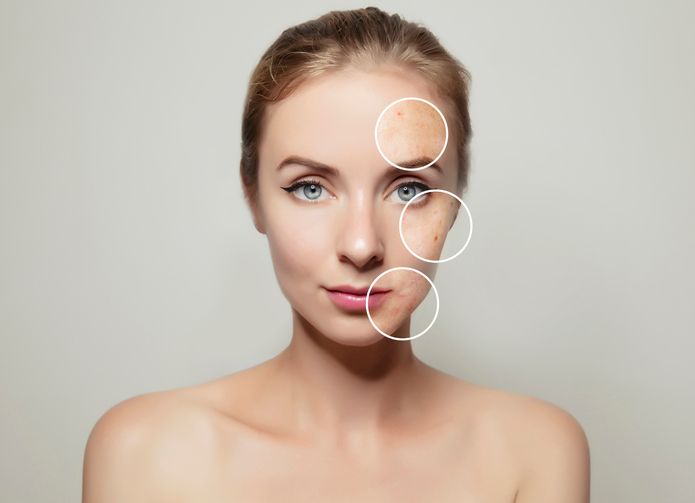
How Sebum Affects Skin Health
Managing Oil Without Overdoing It
Read More

3
Bacterial Growth and Inflammation
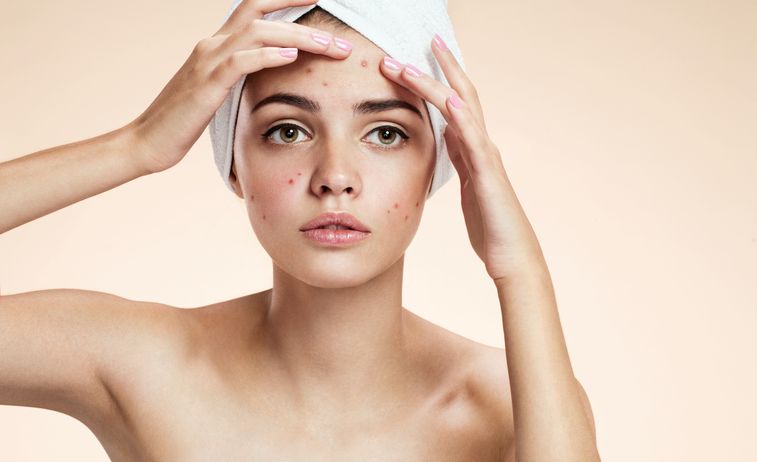
What Happens Inside a Clogged Pore
How to Treat Acne Caused by Bacteria

4
Diet and Nutritional Factors

Foods That May Worsen Acne
Foods That Support Skin Health

Book Now to Experience
Acne Treatment
1 Minute Self-Registration
Date should not be before minimal date

5
Stress and Sleep Disruption
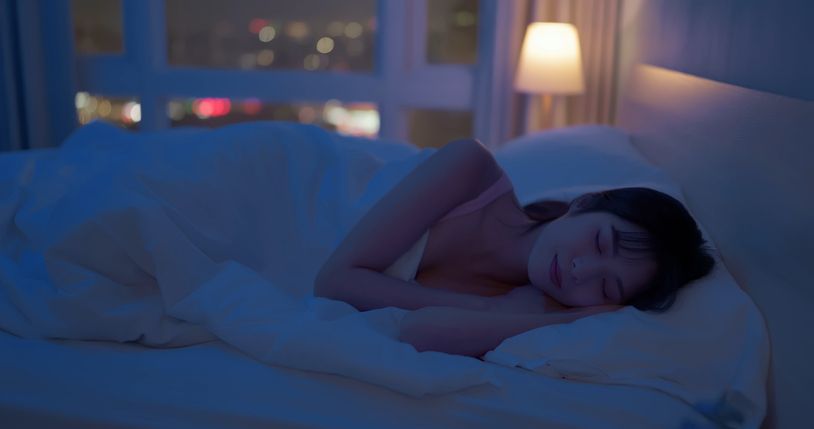
How Stress Triggers Breakouts
Why Sleep Matters for Skin

6
Environmental Pollutants and Irritants
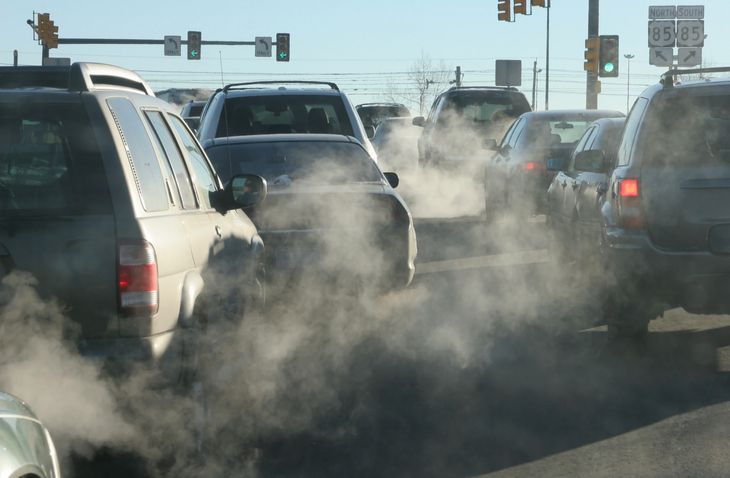
How Environmental Factors Contribute to Breakouts
How to Protect Your Skin From Environmental Irritants
Read More

7
Improper Skincare Routine and Product Usage
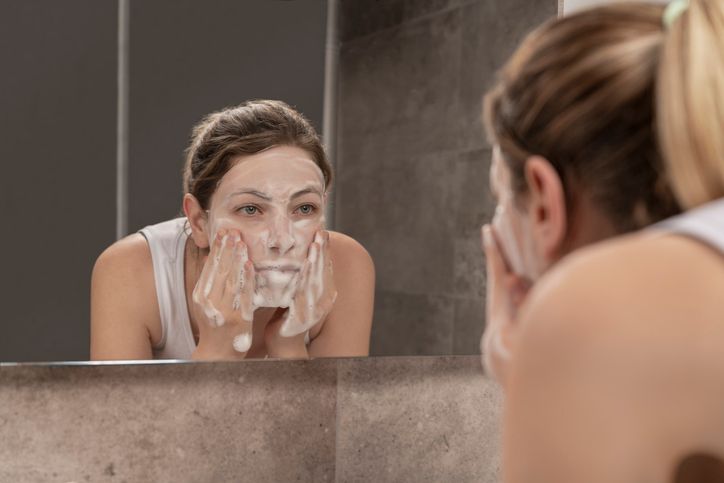
Common Skincare Mistakes That Trigger Breakouts
How to Fix Your Routine and Support Skin Health

8
Treating Breakouts with New Beauty’s Acne Treatment
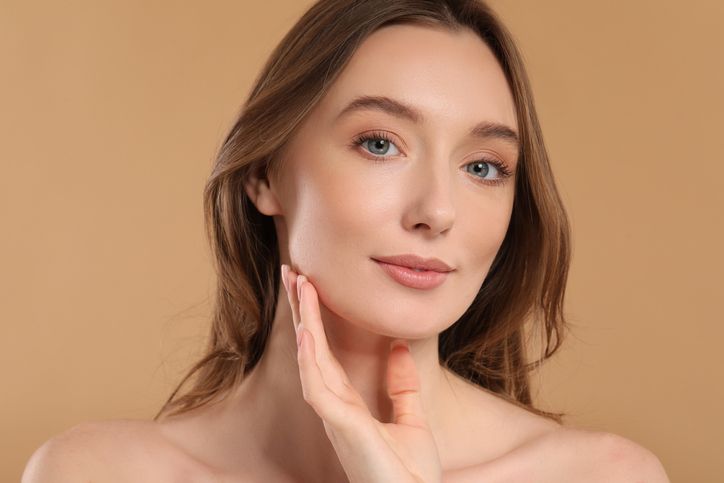
How the Acne Treatment Works
Advantages of the Acne Treatment
Ready for clearer skin?
FAQ
How Long Does It Take to See Results From Acne Treatment?
Most treatments take 4-8 weeks to show initial improvement, and you might see ideal results within 3-4 months of consistent use. Over-the-counter products typically work more slowly than prescription medications. If you're using prescription treatments, you'll often notice changes sooner, but this is crucial to stick to your regimen even after seeing improvements.
Can Birth Control Pills Help Reduce Acne Breakouts?
Birth control pills can effectively reduce acne by regulating hormones that trigger breakouts. They work by: 1. Decreasing androgen production, which reduces excess oil. 2. Balancing estrogen and progesterone levels in your body. 3. Minimizing hormonal fluctuations that lead to breakouts. You'll need a prescription from your healthcare provider, and it typically takes 2-3 months to see improvement.
Is It Possible to Permanently Cure Adult Acne?
While you can't technically cure adult acne permanently, you can effectively manage it long-term through: 1) consistent medical treatment with retinoids, antibiotics, or hormonal medications, 2) proper skincare routines tailored to your skin type, and 3) lifestyle modifications like stress management and diet changes. Your acne triggers may evolve over time, so you'll need to adjust your treatment approach accordingly to maintain clear skin.
Does Wearing Makeup Make Acne Worse?
Wearing makeup can worsen acne if you don't choose the right products and maintain proper habits. 1) Non-comedogenic and oil-free products won't clog your pores. 2) Always remove makeup completely before bed using a gentle cleanser. 3) Clean your makeup brushes weekly to prevent bacteria buildup. 4) Let your skin breathe by going makeup-free when possible, especially during workouts or while sleeping.
Should I See a Dermatologist if Over-The-Counter Treatments Aren't Working?
If over-the-counter treatments haven't improved your acne after 8-12 weeks of consistent use, you should definitely consult a dermatologist. A skin specialist can properly diagnose your specific type of acne, identify underlying causes, and prescribe stronger medications like tretinoin or antibiotics that aren't available over the counter. They'll also create a personalized treatment plan that addresses your unique skin concerns and prevents potential scarring.

Book Now to Experience
Acne Treatment
1 Minute Self-Registration
Date should not be before minimal date
Recommended Articles
COPYRIGHT© NEW BEAUTY MANAGEMENT LIMITED 2026. ALL RIGHT RESERVED.




